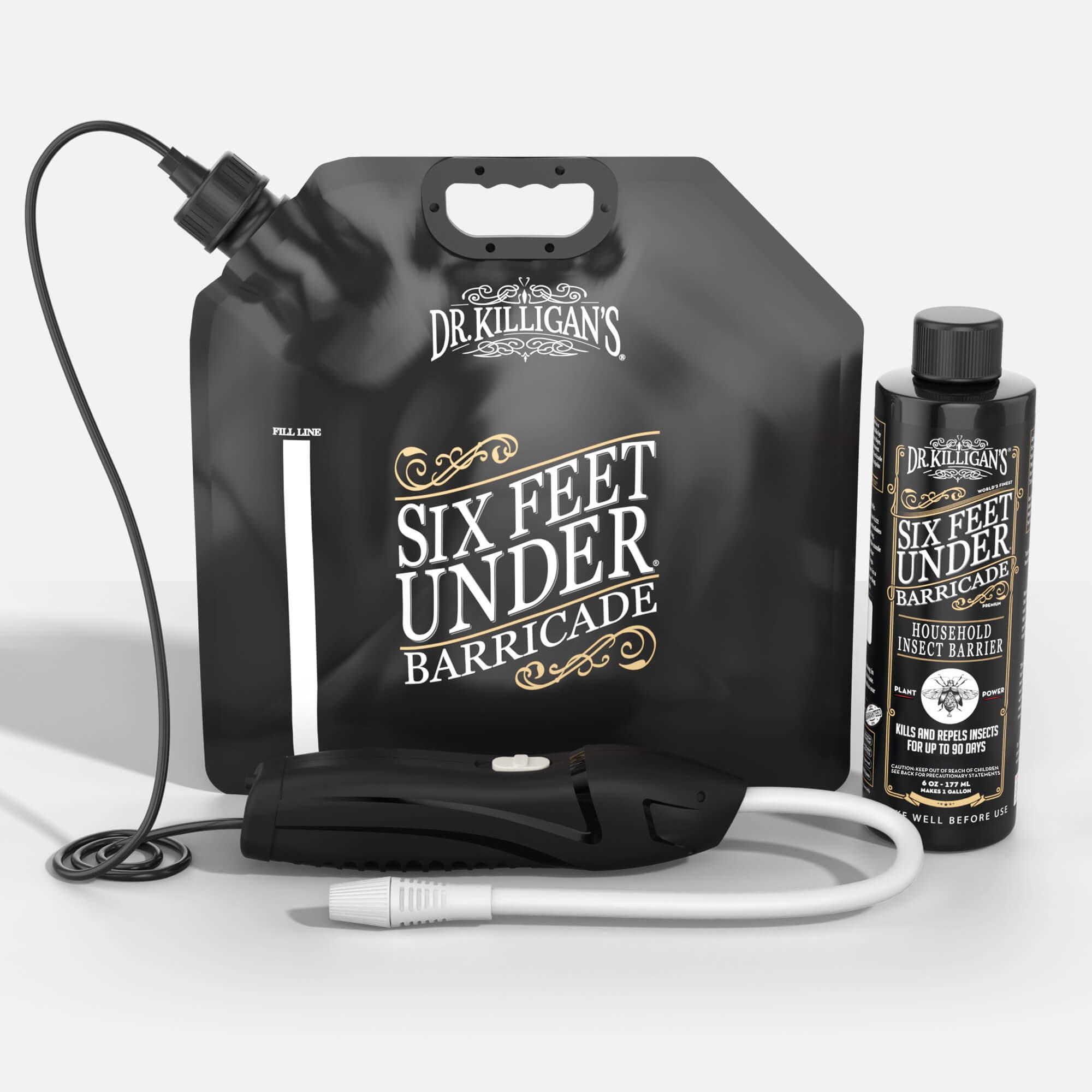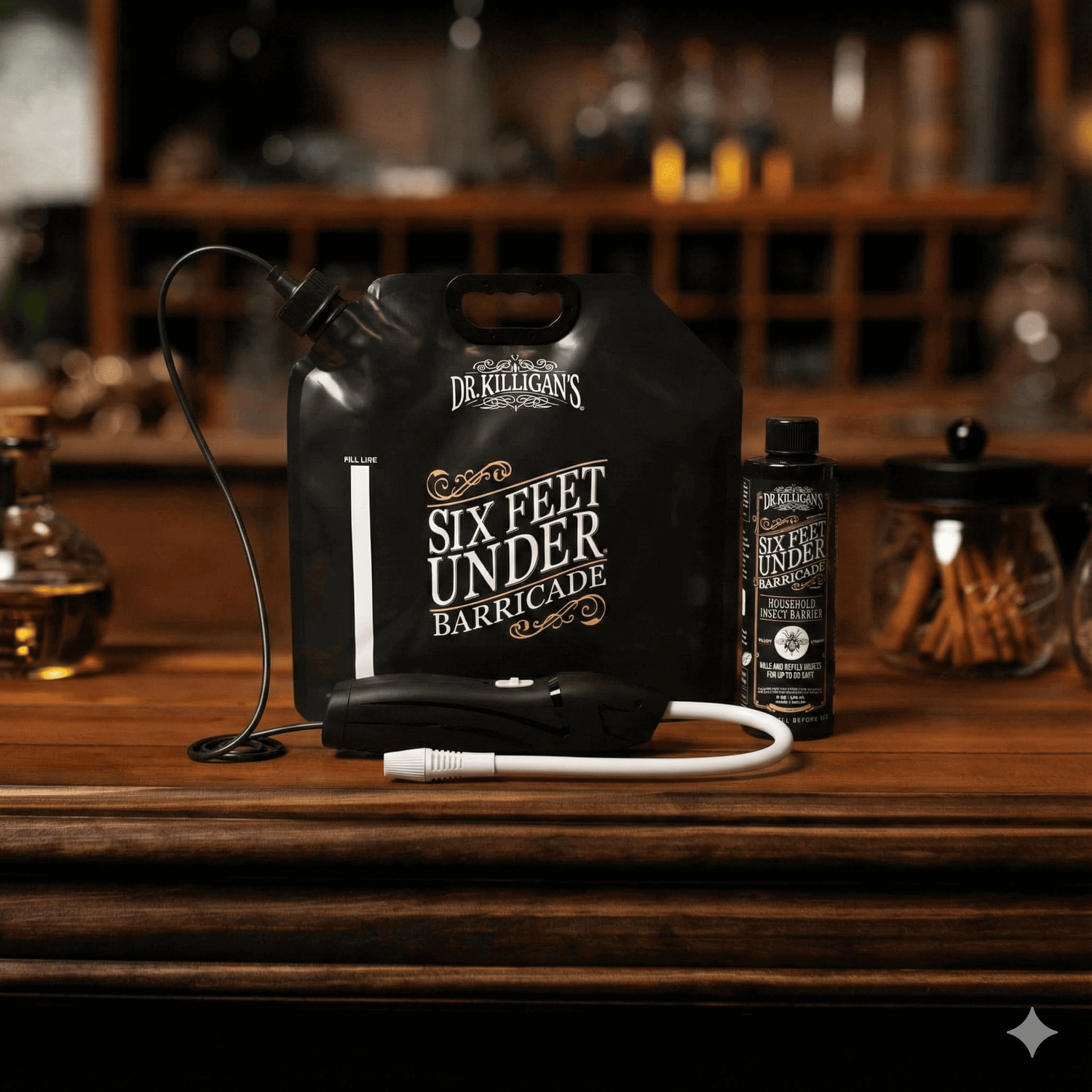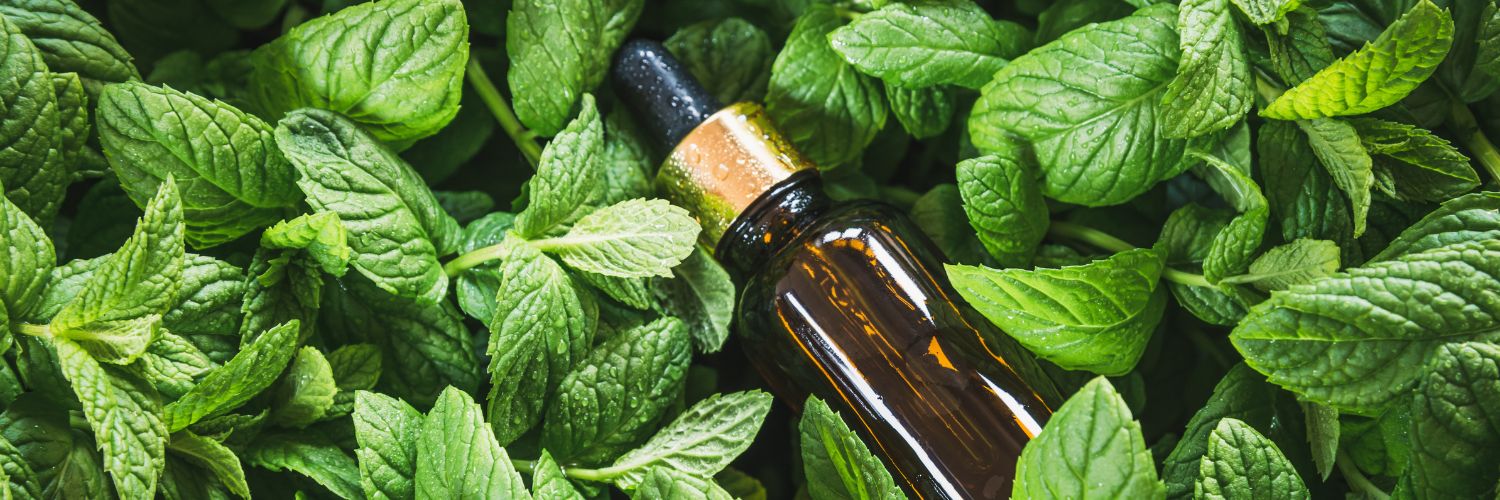Brought to the U.S. in the 1700s, soybean oil has proven its versatility over the centuries. Today, it's valued for more than just cooking—it’s used in eco-friendly products like paints, crayons and even cleansing agents. As an effective, natural pest control solution, soybean oil offers multiple benefits, from suffocating pests to boosting the potency of essential oils.
Here are six powerful ways soybean oil works to keep your home safe from insect pests.
1. Blocks, disrupts and suffocates pests

Soybean oil’s thicker viscosity makes it cling to insect exoskeletons and plant surfaces better than other oils. Unlike us—who breathe through our noses—bugs use tiny openings called spiracles to breathe. These spiracles connect to a tracheal system, a network of tubes that deliver oxygen directly to their tissues. Soybean oil blocks these spiracles, cutting off the bug’s air supply, much like trying to breathe through a pinched straw.
According to a Cornell University profile, soybean oil forms a durable protective layer that stays effective even in tough conditions like heavy rain. Because of this longer-lasting adhesion, the oil has more time to block the spiracles and disrupt the tracheal system, ultimately suffocating the pests. This extended coverage makes soybean oil a reliable solution for pest control, even in less-than-ideal environments.
Did you know? Insects have a fascinating way of breathing called the Discontinuous Gas Exchange Cycle (DGC). They can completely close their spiracles in a rhythmic pattern, stopping gas exchange entirely for periods of time. The idea is that by doing this, they might conserve water, especially in dry environments. However, here's the twist: even desert insects—where you'd think water conservation would be essential—don't always use this breathing pattern. This mystery has led scientists to question if DGC is just about saving water or if there's more to the story... Studies continue to uncover the secrets behind this unique breathing method.
2. Hardens eggs
Soybean oil can harden the outer shell (epicuticle) of insect eggs, trapping them in an inescapable cocoon. Rather than nurturing life, this hardened shell blocks moisture, leading to dehydration and egg failure. In a study from Texas A&M University, it's noted that oils like soybean oil effectively interfere with egg development by blocking oxygen exchange, suffocating insects. Though slower than chemical pesticides, this eco-friendly approach ensures insects cannot build resistance to the physical mechanism of suffocation.
3. Demonstrates non-toxic strength
According to a Cornell University study, soybean oil—used as a pesticide—is classified as low-risk with minimal health or environmental impact. Its eco-friendly properties make it a top choice for natural pest control applications.
- Environmentally friendly: Soybean oil is biodegradable, breaking down quickly with minimal environmental impact.
- Non-toxic to humans: Safe for use around people and pets, it poses no significant health risks.
- Exempt from EPA registration: Due to its low toxicity, soybean oil qualifies for exemptions from strict pesticide regulations.
-
Versatile use: Often combined with other natural ingredients to boost effectiveness without sacrificing safety.

4. Enhances essential oils
Soybean oil doesn’t just suffocate bugs—it enhances the effectiveness of essential oils like cinnamon and clove. Acting as a carrier, soybean oil improves the stability and potency of these oils, making them last longer and work harder. According to a study published in Food Research International, soybean oil’s unique composition allows it to act as an efficient emulsifier (a substance that helps blend liquids that normally don't mix), ensuring even distribution and enhanced stability of active compounds. This combination results in a powerful, long-lasting bug-fighting solution, even under tough conditions.
5. Backed by science: Proof in the pests
Backed by scientific studies, soybean oil isn’t just about suffocating pests—it’s proven in lab settings to effectively reduce bug populations. According to research from Cornell University, soybean oil has shown remarkable results in controlling pests.
- A study showed that an emulsified soybean oil formulation reduced gypsy moth (Lymantria dispar) hatching by 96% compared to no treatment.
- Two applications of 5.0% soybean oil killed 98% of terrapin scales, while 2.5% killed 72% of San Jose scales.
- No red mites survived at 5-7.5% soybean oil application rates.
- In mosquito studies, formulations containing soybean oil repelled Aedes albopictus, Culex nigripalpus, and other species for over 7 hours.
6. Minimizes further treatments
When used in and around the home, soybean oil-based pest control products can significantly reduce the need for additional chemical treatments. According to Michigan State University Extension, applying these oils early in a pest's life cycle—before they spread—creates a protective barrier that suffocates pests like mites and aphids. By targeting these insects at vulnerable stages, you can minimize infestations and the need for harsh insecticides, keeping your home safe and pest-free.
From eggs to adult insects, soybean oil provides versatile, effective pest control at every stage. Ready to put its power to work?
Introducing Dr. Killigan’s Six Feet Under

Looking for an eco-friendly pest solution? Dr. Killigan’s Six Feet Under Plant-Powered Insect Spray, featuring 3.13% soybean oil, offers powerful pest control without harmful chemicals—safe for your home, pets and family. Combining the suffocating power of soybean oil with the potency of essential oils, it’s a natural, long-lasting solution that minimizes further treatments and works even in tough conditions like heavy rain.

















